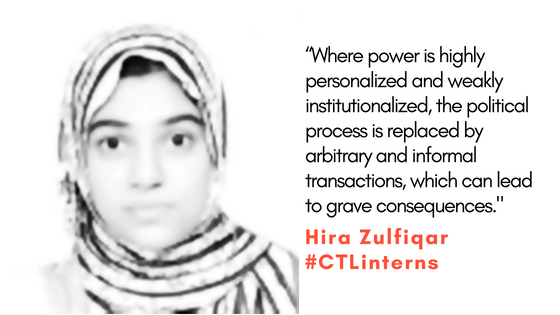How Elections Are Rigged – Don’t Try This At Home
Democracy, as described by Abraham Lincoln, is government of the people, for the people, by the people. Fair and unbiased elections are imperative to ensure the success of democracy. In a democratic nation people must be able to elect a leader they have full confidence in.
Unfortunately, it is not uncommon for a controversy about election rigging to arise in Pakistan.
What is election fraud?
It is any activity that happens before, during or after the elections that is in violation of the laws of Pakistan. The Election Commission of Pakistan, (ECP) is an independent and constitutionally established federal body that is responsible for ensuring the smooth running of fair and just elections throughout the country.
Volume 1 of the election laws laid down by the ECP have, through sections 78-98, listed down actions which would constitute an offence against electoral laws. Moreover, the Pakistan Penal Code (PPC) in Chapter 11 has laid down the rules on how these offences are to be punished.
The primary purpose of election fraud is the retention of power by manipulators, be it any institution or individual.
The four methods of manipulation that are commonly employed are the following:
- System rigging
This is usually the first step that is used by the manipulators. It comprises of methods like tampering with existing laws and the Constitution, judicial manoeuvring and the tweaking of election laws. These take place on a grand scale and the public is also easily manipulated into fulfilling the aims of the manipulator.
- Pre-poll manipulation
It is carried out by making electable candidates fall in line and join certain parties. This objective is achieved by leaders of larger parties advancing certain favours and promises to others for lucrative positions in the future. And though it may seem obvious, during this phase the stronger oppositions go to great lengths to make each other look undesirable for the posts.
- Polling day Irregularities
Polling day is the most important and taxing day in the process of elections and many malpractices are also brought into action on this day. Closely contested constituencies are ideal for many of the polling day frauds as even minor irregularities tend to make a significant difference in the outcome.
Another way to identify polling day fraud is the exaggerated voter turnout, this could be an indication of foul play on the part of the party workers, personal militia and intelligence agencies.
A report headed by Justice Nisar-ul-Mulk outlined some major flaws and inconsistencies that had taken place during the 2013 general elections, though it was concluded that the elections held were fair, just and in accordance with the law. Despite this, there have been a few things highlighted in this report which can be used to improve the situation in the upcoming elections. According to this report, the lack of planning in shifting the ballot papers from one press to another, printing of excess ballot papers and late hiring of the printing staff were some of the reasons due to which irregularities might have occurred in the 2013 elections.
Other inconsistencies that can arise on election day include substantive disenfranchisement of the population due to defective voter rolls, fraud, violence and gender exclusion.
Moreover, in some locations, the overall outcome is compromised due to the election staff’s incompetence in following election procedures, which in turn affects the confidence in the outcome.
Lastly, although fake voting is an indication of sheer desperation of the manipulators to win the elections and is often used as a last resort, it remains a threat that is used to sabotage the fair process of elections.
- Post-poll Manipulations
This includes upsetting the ECP’s power under section 103-AA of Representation of the Peoples Act 1976 to declare polls void.
This can also be induced by creating ‘grave irregularities’ to take place causing delays in the timely disposal of writ petitions of the aggrieved parties.
Excessive punitive action may also be proposed against elected members for exceeding the limit of expenses and corrupt practices.
Conflicting unofficial and official results can also raise an issue with regards to the authenticity of elections.
When power is highly personalized and weakly institutionalized, the political process is replaced by arbitrary and informal transactions, which can lead to grave consequences.
The views expressed in this article are those of the author and do not necessarily represent the views of CourtingTheLaw.com or any organization with which she might be associated.


